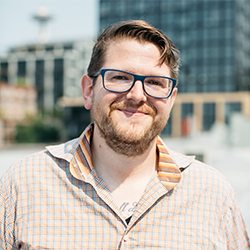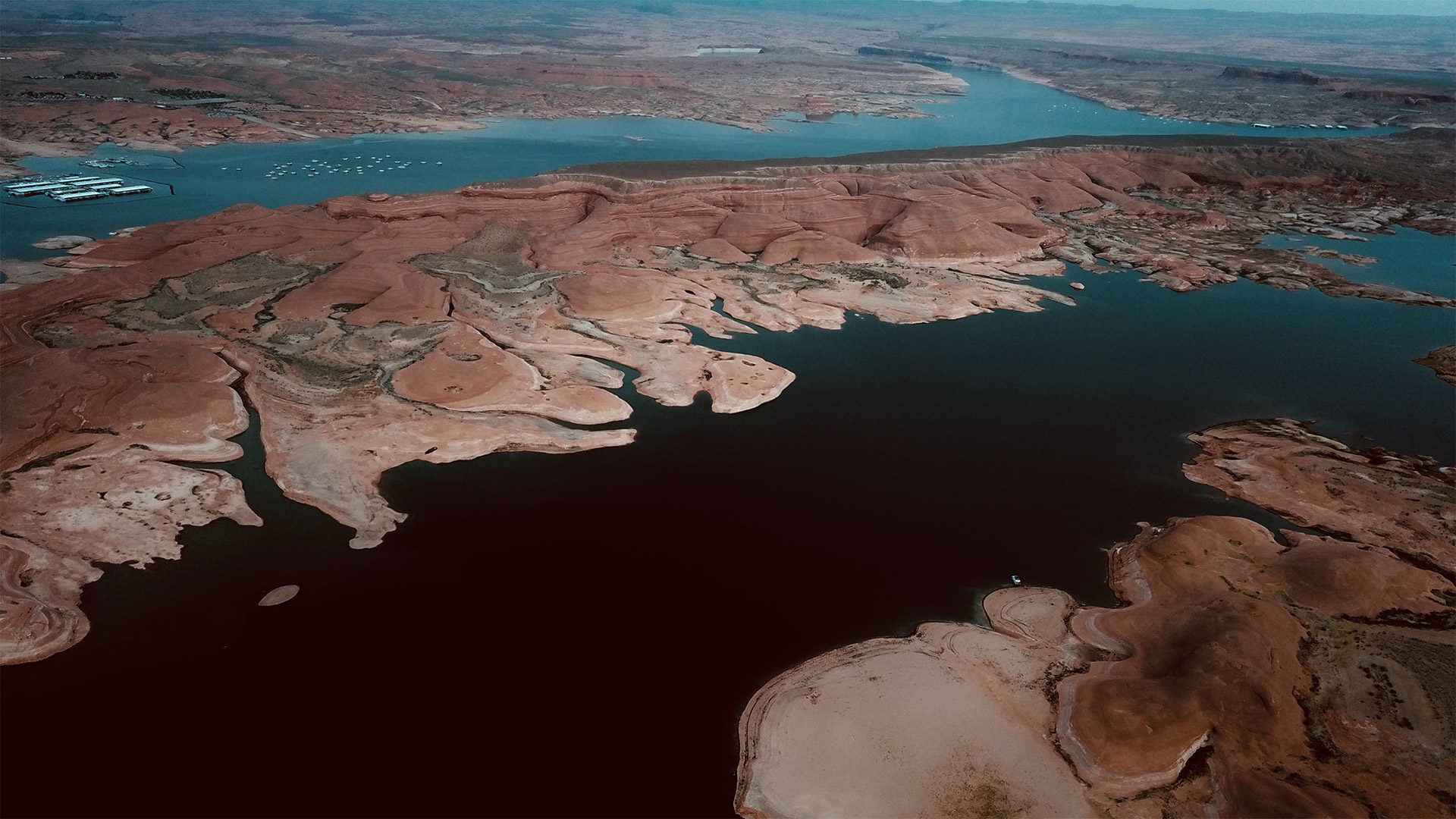Over the past months, we’ve watched the pandemic unfold, contouring to the same or worse racial disparities that are usually found in our society and health systems. The same barriers to access exist now in Black and Native communities as existed last fall. The same internalized biases exist in exhausted healthcare works as existed before. And we’re all familiar with the fear that grips each of us around health, jobs, housing, schools, childcare, and our basic systems of society.
In these spaces of fear, we’re often less able to access our active practices of filtering our biases and choosing to act differently—leading to harm, most often of our Black and Brown community members. In the last few weeks in June, we’ve seen anti-Asian assaults in the Ballard neighborhood of Seattle and white supremacist propaganda posted in Seattle’s Chinatown and International District. We’ve watched in horror the high profile lynchings in the form of police and vigilante killings of Black folks in Minnesota, Georgia, Florida, Washington, and undoubtedly more places before this piece is published. We’ve seen the less publicized police killing of Black first responder Breonna Taylor when police broke into her home in Louisville, KY. And we’ve heard reports of the devastatingly disproportionate toll of Covid19 among the Navajo Nation. And undoubtedly, between when this is written and published, there will be more names of people harmed—some we will learn and more will never be published because the events aren’t filmed.
While we’re stuck at home glued to our digital windows to the world, many of us may become more acutely aware of acts of violence that have been happening all along. Under our current load of fear and stress, these traumas each have their own particular impact, but they also have a cumulative impact on each of us—and most of all on those who see your own faces reflected in these particular victims and who live under this stress of racism every day.
And I am a white man working at The Seattle School, where our mission is: “to train people to be competent in the study of text, soul, and culture in order to serve God and neighbor through transforming relationships.” In the past months, I’ve sat in Zoom meetings with students, alumni, staff, and faculty of this majority-white institution, and I have heard story after story from people of color about the impact of this season of isolation and visible violence, as well as specific experiences of discrimination, violence, silence, and pain.
Racism is a primordial wound on the heart of our culture and it touches us all. It is a sin that cuts in so many directions—victims, perpetrators, bystanders, and descendants. And as I seek to understand my role in all this, and my turn of repentance, to love God and my neighbors, I am drawn back into wisdom from the Biblical texts.
In the story of Israel, God set in place cities of refuge—places where people could flee from reckless vengeance killings. These towns were also set aside as the homes of the Levites, the priestly clan. The Jewish Talmud offers deeper understanding about the teachings on these places of refuge. Requirements are outlined: these cannot be large cities or small towns, and they must have a water source. If there is no water source, a well or a canal must be dug. The roadways into these cities must be twice the standard width of the highways going in and out of the largest cities. And every intersection leading toward these cities must be clearly marked.
In short, it was never sufficient to name a place as a city of refuge. The lasting work had to be put in, in order for it to be a legitimate place of hospitality for those in danger of violence. As much as I long to call myself a person who is anti-racist, the daily work to be anti-racist is so much more than that. This language from the Talmud changes the way that I hear the gospel message preached by John: “Prepare the way of the Lord and make straight paths for him.”
And it changes the way that I read Isaiah 40:3-5:
A voice of one calling:
“In the wilderness prepare
the way for the Lord;
make straight in the desert
a highway for our God.
Every valley shall be raised up,
every mountain and hill made low;
the rough ground shall become level,
the rugged places a plain.
And the glory of the Lord will be revealed,
and all people will see it together.
For the mouth of the Lord has spoken.”
Last week, our community prayed this passage alongside Rodrick Dixon’s performance of “Comfort Ye” from Handel’s Messiah. He gives voice to the ache and longing for justice present in this passage and in the Black community. As I listen to his voice I am reminded that there is no good news to the gospel of Jesus if it does not bring loving justice to our world.
In my own life as a white man, and in my work in The Seattle School community, it is not enough to be aware of violence. And it is not enough to name myself an ally. In order to credibly love my neighbors, I must join in the lament of my siblings in pain, and even more, we must together continue to do the mundane and invisible work of creating and maintaining access ways, and sources of life for Black, Brown and Native people in our communities. And as a white man, I must enter my own lament. My own source of life is cut off by racism when I do not engage in this justice work, where I myself am often the worker who joins late in the day.
In my particular work at The Seattle School this looks like grieving and strategizing with students; implementing and revisiting equity strategies as we distribute Covid19 benevolence funds; from the beginning, addressing racial and socioeconomic disparities as we lead workshops on self-care for ongoing trauma; and daily making space in our community rhythms of prayer to hold grief and explore our own work in justice building. It also means showing up in my own community—demanding justice and accountability for Stonechild Chiefstick, a Native man killed by police who have gone uncharged in my county last year, and for Bennie Branch and Manuel Ellis, both Black men killed by police in nearby Tacoma. And it means listening when my Black neighbor speaks about her fear for her teenager’s life, and doing work with our local police to ensure that this child is safe in our shared community.
None of these things give me or The Seattle School the right to label ourselves a place of refuge. Instead, they are some of the daily practices we engage relationally and, in so doing, are ourselves being transformed. We have the blessing of not being a monolith. And while we are a majority white learning community, we are also a multi-ethnic, multi-racial, and multicultural community that continues to be shaped and led by one another. To be a place of refuge, dialogue, and repair in our society, we must be engaged in this work as a daily spiritual practice, inviting our souls, our economics, our politics, and our relationships to be contoured to the Spirit of God at work in the world.
This past Sunday, Christians celebrated the feast of Pentecost. Humanity has always been in need of God’s flames uniting us with all people in love and justice. The fires across USAmerica are calling out for love and justice for Black bodies in our nation. I believe that the Spirit needs us to be people whose lives are marked by doing the work that creates justice and peace.
As a school, we can never really be a permanent city of refuge, but we can be a place along the way where people join with God and learn from one another about how to build such places together in our homes and congregations; nonprofits and friend groups; therapy offices and neighborhoods. As a white person, a huge part of my learning is listening and bearing wit(h)ness, and another huge part is consistently acting, speaking, and sharing in this blessed work, especially when society privileges me in such a way that I could choose to simply check out and reap the benefits handed to me because of my white skin.
This is important, holy work. And it is important work to talk about together. As wrong as it is to put up signposts pointing to places that are not actual refuge, it is also crucial to illuminate the pathways where work really is being done. This both opens us up for accountability and brings us into dialogue with those who have much to teach us. There is not a “right” way for white folks to do this work and come out looking good. We must move into it making mistakes and repenting all along the way. Some may experience this as a deterrent, but for those who receive it as the blessing it is, it is a way forward into sharing the weighty blessing of Pentecost.
One of the gifts of working in a place where psychology and theology intersect, is that while therapeutic changes often happen confidentially behind closed doors, the world of communities of faith are rich with public symbols and places to both contain and display communal grief and repair. Here, in the work of racial justice, we need both of these together. We need deep, internal, and interpersonal work. And we need communal and symbolic actions that disrupt oppression and create structure for cultural change.
May we join with the Spirit to create spaces of refuge and repair in our neighborhoods and in our world.


